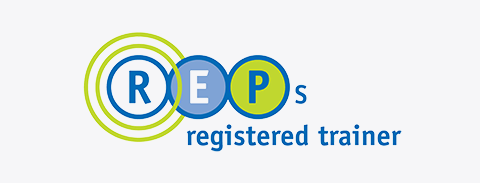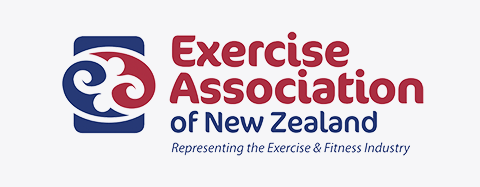In this topic, we focus on codes of conduct, ethical practice and those who implement such safeguards in the health and fitness industry. You will learn:
- What is Ethical Practice
- Register of Exercise Professionals (REPS)
- Exercise Association of New Zealand
- Ramifications of unethical conduct
Terminology and vocabulary reference guide
As an allied health professional, you need to be familiar with terms associated with basic exercise principles and use the terms correctly (and confidently) with clients, your colleagues, and other allied health professionals. You will be introduced to many terms and definitions. Add any unfamiliar terms to your own vocabulary reference guide.
Activities
There are activities throughout the topic and an end of the topic automated quiz. These are not part of your assessment but will provide practical experience that will help you in your work and help you prepare for your formal assessment.
Within the fitness industry, like every industry, there are actions and behaviours which are appropriate and those which are not. The term ethical practice refers to actions and behaviours which are accepted within your practice; disregarding or failing to meet these minimum standards can have differing levels of ramifications should these ethical behaviours be breached. Like many industries, there have been controversial stories arising over the years outlining examples of non-ethical behaviours within the fitness industry which have tarnished the reputation of the industry.
Examples of unethical conduct are (but not limited to):
"Fake it till you make it" is a common term within the fitness industry however, this is a business approach which should rapidly be avoided. Training or advising clients (or fellow colleagues) in areas of which you are not yet qualified is a dangerous game to play and falls out with your code of conduct. Fitness professionals are required to maintain their ongoing education annually after initial graduation, this is the perfect opportunity to add further strings to your bow should there be an area you wish to upskill and become qualified in, honesty is the best policy therefor do not claim to be proficient in something you are not confident or qualified in.
During the pre-screening process and following sessions with your clients, you will be provided information such as address, date of birth, bank details, email address and phone number, medical information and more. This information is provided to you under your and the fitness establishment you may work for legal and ethical promise as per the Privacy Act ( 1993), incorrect use or distribution of this information can result in ramifications such as affecting the reputation of both yourself, your business name and that of the establishment you work for and, could result in legal implications.
Dating clients or fellow colleagues could tarnish your reputation as an exercise professional, should you find yourself in a romantic relationship within the fitness environment, you should discontinue the business relationship immediately and avoid mixing business with pleasure. As a fitness professional working close proximity with clients, you should also be aware of what is considered professional and non-professional touching. Other activities on the gym floor such as using your mobile phone whilst in a session with a client or talking to other members of the gym, not only does this not look professional, ignoring a fee-paying client, should something happen, an accident or an emergency with your client, you could be considered to have conducted negligent behaviour and find yourself under investigation either from your fitness establishment or legally, this is not a situation you wish to find yourself in.
This may sound obvious however you would be surprised how often this happens. Your client is your source of truth when it comes to your session design and how their body is responding to it. Trainers and fellow exercise professionals have been known in the past to want to “smash their clients” this is what some trainers believe they are required to do, however, without listening to your client, their needs, preferences, their medical conditions, and injury history you could find yourself in a troubling situation where your client become injured or a condition is further exacerbated as a result of your training session. On the simpler side, if you do not listen to your client, how do you know what they want to achieve by paying to train with you?
In order to safeguard exercise professionals, exercise facilities and education providers, and the fitness industry itself, registrational and industry bodies have developed registration requirements, which serve as guidelines to support exercise professionals in various aspects of their career from business set up support to the guidance of where to find supportive resources and contacts and ethical guidelines which are implemented in order to support you in being successful in key areas of your career along with upholding your reputation and your footprint within the industry.
Let’s take a look at some examples of these and how these are of benefit to you in your career.

One such registrational body which is of great value in your career is REPS- NZ Register of Exercise Professionals.
Who are REPs?
REPs, the Register of Exercise Professionals, is a registrational body for exercise professionals, exercise facilities, and education providers based in New Zealand. Many members of the fitness industry are reputable but sadly, not all and, by providing registration requirements, REPs aim to maintain a high level of industry reputation by implementing registration criteria which candidates are required to meet on an annual basis in order to hold registration, and in turn, recognition by REPs indicates that they meet the industry standards. Registration with REPS is like a “warrant of fitness” rather than a one-time application, with registration being required to be renewed on an annual basis with criteria that needs to be met upon each application for registration. Examples of criteria include:
- Initial Qualifications ensuring they are competent to undertake their role
- Ongoing education to ensure they keep up to date (including first aid and/or CPR)
- Follow the REPs Code of Conduct to protect all involved.
In order to achieve and maintain your REPS registration, you are required to achieve 10 CPD (Continuing Professional Development) points per registration year via the completion of recognised courses. In order to learn more and search for recognised courses, visit Continuing Professional Development page on the REPS website. Please note, first aid and CPR courses do not count towards your CPD points.
Why register with REPs?
When successfully registered with REPs, you will then be able to call yourself (and, proudly tell your clients) a “Registered Exercise Professional”, a mark of the recognition that you both meet and uphold the standards of the industry. This will set you apart from your colleagues and also provide your clients with the peace of mind that they are entrusting a verified individual with their health and fitness requirements.
Those who fail to meet these standards or who are deemed unsuitable to continue working in the industry will be unsuccessful for registration with REPs.
Benefits for registered REPs professionals
Other than providing you with registration as a registered exercise professional, REPs also provides registered members of the fitness industry with the following tools:
- a search function for fitness professionals and members of the public to find reputable fitness professionals, exercise facilities and educational providers
- discounts on ongoing education courses provided by a variety of organisations
- a complaints system for any person that wishes to complain about a registered trainer or registered facility
- substantial discounts to events such as FitEx, the annual fitness industry conference, and the Exercise New Zealand Roadshow
- free fitness professional email address @registeredtrainer.co.nz
- access to products and services and special rates
- OneMusic Licence Valued at $207 and more.
To learn more about all the benefits of being registered with REPS visit ‘What we do for trainers, facilities and education providers’. To read more about what REPS do, visit the REPS website.
REPs code of ethics and scope of practice
In order to ensure a minimum level of professional conduct, REPs registration reflects your professional knowledge is up to date as well as your awareness and commitment to upholding an ethical level of conduct.
Exercise professionals add significant value to the health, wellness and physical wellbeing of New Zealanders. In performing their role, it is expected that all REPs registered exercise professionals maintain a high degree of professionalism and ethical conduct’REPs
As a registered exercise professional, you must work within your scope of practice which refers to only conducting tasks you are registered to undertake and you agree to adhere to the code of conduct by adhering to the following five principles of the code:
- Uphold professional standards
- Maintain safety
- Appropriate relationships
- Respect privacy
- General professionalism
Breaches of this code can be reported to REPs by fellow exercise professionals, fitness employers, and members of the public.
To read more about these five principles, please see the following article, REPs Code of Ethics. To learn more about the scope of practice for a variety of roles within the fitness industry, refer to the REPs website to ensure you are aware of your professional boundaries and requirements.

The Exercise Association of New Zealand (ExerciseNZ), formerly FitnessNZ, is a non profit representative organisation. Their mission states their aim is to ‘proactively support a sustainable exercise and fitness industry in New Zealand by growing participation in structured exercise through advocacy, information and industry standards’.
ExerciseNZ’s members are not health and fitness individuals, rather, organisations that exist within the health/fitness/exercise industry that operate fitness/exercise facilities (such as fitness centres and health clubs). Such members include commercial operators (e.g. Les Mills and Contours), non-profit organisations (e.g. YMCA), and local government council facilities.
What does ExerciseNZ do?
ExerciseNZ plays a key role in the following activities, taken from their strategic plan, in order to uphold the fitness industry:
- Advocacy -fight on behalf of the registered fitness facility
- Resource development – in areas such as industry issues, Human Resources, membership agreement guides as well as a comprehensive Health and Safety guide to support New Zealand fitness facilities
- Standards development (in conjunction with REPs where exercise professionals are involved).
- Events that support professional development of those in, and/or recognise, the exercise industry
ExerciseNZ is a part owner of Skills Active, a non-for-profit Industry Training Organisation (ITO) which create qualifications which in turn, supports the training and up-skilling of staff within the fitness industry. Skills Active also supports the fitness industry in the following ways:
- Works with employers to implement and develop workplace training
- Builds industry relationships and expertise
- Develops national standards of units of learning resources and assessments pertaining to qualifications within the fitness industry
- Provides information and advice to trainees and their employers
- Arranges the delivery of on- and off-job training, assessment of trainees, along with the monitoring of quality training.
ExericseNZ also provides links to portals advertising fitness related job vacancies, the main job search engine within the fitness industry in New Zealand being FITNZ.
Who registers with ExerciseNZ?
Fitness centres and those interested in fitness centres register with ExerciseNZ. Registration as a fitness professional would be undertaken with the Register of Exercise Professionals (REPs). ExerciseNZ represents fitness registered fitness centres and provides a wide range of support and advice for issues within the industry.
Exercise Association of NZ Code of Ethics
In order to ensure certain standards are met and adhered to, Exercise NZ also have a code of ethics for their members also. Having a policy which instills a minimum level of conduct not only provides rules which its members must adhere to in order to maintain their membership/registration, this provides peace of mind to all those who attend facilities which are affiliated to Exercise NZ that they are reputable, approved and should anything be untoward, there is a process to follow which safeguards both the members and those who visit these facilities.
As with all industries, there are consequences should unethical conduct be evident within the fitness industry. Over the years, the fitness industry has received some bad press which can affect the industry as a whole and not just those directly involved. Take a look at the following example taken from the Brisbane Times which discusses how a personal trainer and the fitness company he was associated with underwent a legal investigation after his client spent a week in hospital following his personal training session.
In this topic, we focused on codes of conduct, ethical practice, and those who implement such safeguards in the health and fitness industry. You learnt about:
- What is Ethical Practice
- Register of Exercise Professionals (REPS)
- Exercise Association of New Zealand
- Ramifications of unethical conduct

